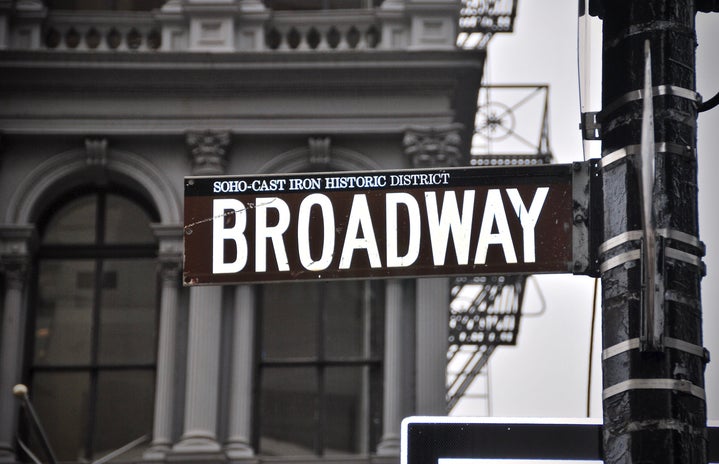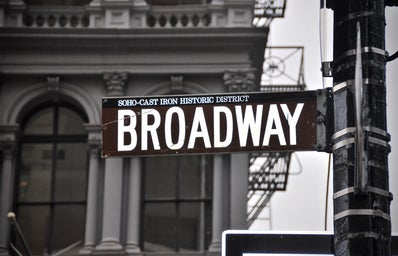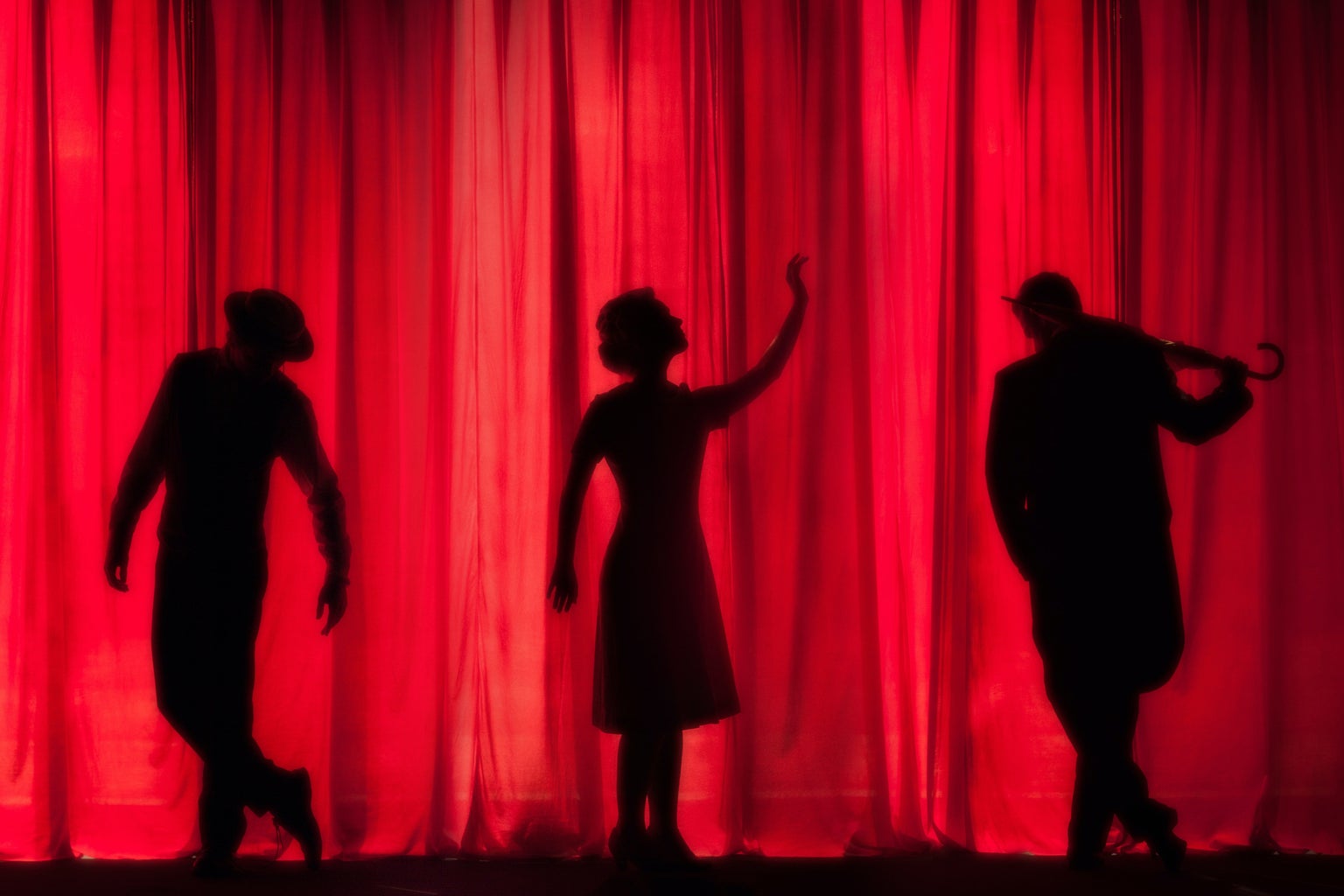Over the past several years, jukebox musicals have skyrocketed in popularity across Broadway box offices and regional theatre companies around the country. Jukebox musicals have embedded themselves in American pop culture and theatrical arts, becoming nothing short of a phenomenon. Whether we know it or not, whether it’s positive or negative, the influx of jukebox musicals is unmistakably altering how we view and interact with live theatre.
What is a Jukebox Musical?
A jukebox musical is defined as a musical that uses songs that were previously written and released by an artist or within a genre instead of composing an original score. One of the most well-known jukebox musicals to date is “Mamma Mia!” which solely features songs written by ABBA. Not only is “Mamma Mia!” a story many people know and love, it’s also widely credited with the rise in popularity in the jukebox musical genre.
For the purpose of this article, jukebox musicals can also fall into another category: biographical musicals. In a biographical jukebox musical, the show simultaneously uses songs of a particular artist or group and tells the true (although usually dramatized) story of that artist through their own music.
I think it’s also important to note at this point that there’s nothing wrong with enjoying biographical jukebox musicals. I would just like to encourage the general population to be more conscious of the media we consume, why we do it, and what the effect of that media consumption is.
While there are creative ways to execute jukebox musicals, ultimately I believe biographical jukebox musicals are cash grabs, created for the sole purpose of bring more, especially older, people to Broadway. Let’s explore why.
Why do Jukebox Musicals Pose such a significant threat to the future of live theatre?
The fundamental structure of musical theatre
Theatre is its own art form. Throughout the development of pop music and theatrical music, both genres underwent separate evolutions. Musical theatre scores follow very specific formulas and are written to showcase specific, consistent talents in their performers. So, one of the biggest problems with jukebox musicals is the inability to use their songs for auditions and other professional or creative endeavors.
As an actress myself who proudly wears the label of “singer first,” I am expected to keep a folder full of audition songs and cuts from specific categories of musical theatre. These categories can be specific and deal with the emotion portrayed during the song, or they can be general and reference only a time period the show and song should be chosen from. The audition folder is usually curated specifically to address one’s individual strengths as well as diversity in singing and acting abilities.
Because songs from jukebox musicals were released first as pop songs, they can’t be suitable for auditions. A song taken from a jukebox musical usually doesn’t contain the volume of storytelling as a song from a traditional musical would, since it was created to provide vagueness and relatability to the target audience of listeners and incorporate the personal background of the singer. When a song is manipulated into a storyline it wasn’t originally intended to fit into, it becomes more difficult for a performer to attach emotion and storytelling to it, especially in an audition. The message of the musical and of the original song are both lost in translation.
The simplification of musical storytelling
Branching off of the previous point, it’s difficult to accommodate a song fitting into both the artist’s original intention and the new story of a stage musical. There are a number of problems that this specific element presents, one being the watering-down of the show’s emotional capabilities for the sake of retaining the integrity of the songs used.
In a jukebox musical, since the songs weren’t written specifically for the story, it’s difficult for the music to sound natural and it’s even more difficult for the music to serve an actual purpose advancing the plot of the show. This makes the story start to feel choppy and is increasingly disengaging for the audience. It perpetuates the stereotype that songs in musical theatre don’t serve purposes and it’s just a strange and spontaneous song break. Plus, it forces audience members to think back to their own experiences with these popular songs that they already know, comparing and contrasting them to what they’re hearing and seeing in front of them, making it impossible for the audience to be fully engaged in what they’re watching and impossible for them to form new experiences surrounding the media they are consuming.
the devolution of theatrical diversity
Since so many recent Broadway seasons have been comprised of many jukebox musicals (six on Broadway right now out of 20 total musicals according to Playbill, which is actually a pretty crazy statistic at 30%), actual casting in these shows becomes a problem as well. In the ultimate irony, the developments of inclusivity, like beginning to cast people of all identities, races, demographics, sizes, etc., and the developments of biographical musicals occurred in parallel.
In a biographical musical, a lot of emphasis is placed on casting actors who look and sound very similar to the artist they’re telling the story of. Although a biographical musical has to do this in order to make the story more realistic, there are very small subsets of people who are actually similar to those they’re trying to portray. Only someone who looks and sounds like Michael Jackson could be cast in “MJ” which is insanely limiting and directly contradicts the theatre world’s larger goal to be inclusive to all actors, and the same goes for every biographical musical.
The popularity and longevity of broadway
As one of my own personal observations, jukebox musicals tend to not have longevity and retention in the grand scheme of the theatre world. This is especially true when it comes to biographical musicals, since they tell stories of artists who have lived full lives and were likely popular before younger generations were even born.
It appears that biographical musicals are almost always marketed towards older generations like Baby Boomers and Generation X. For many of the people of the older generations, it’s a chance to experience the story and music of an artist that was a part of their life at one point, and they want to be immersed in their music again. In other words, these shows are not nearly as popular with Generation Z. While I have observed many Gen X’s and Boomers commenting that they would like to see the Neil Diamond musical, I can’t say the same about Gen Z.
It’s easy to see the sheer magnitude of impact that Gen Z has on pieces of art and media that they enjoy. Something that becomes popular with Gen Z is immediately deemed as “viral” and it’s then spread like wildfire across the entire internet. For example, original musicals, even musicals based on true stories with original scores, that are popular with younger audiences (trendy shows amongst teenagers like “Hamilton,” “Dear Evan Hansen,” “Heathers,” “Six,” “Beetlejuice,” “Hadestown,” etc.) have all experienced insane longevity for this reason. All of these shows have had extensive Broadway runs, and as Hamilton in particular enters its ninth year of being on Broadway, it’s vital to mention the impact that younger audiences have on the influences of live theatre in all of our day-to-day lives.
Many biographical musicals popular with older generations, about artists like The Beatles, Tina Turner, The Jersey Boys, Gloria Estefan, Neil Diamond, Michael Jackson, and more, simply don’t experience the same attention online and throughout the wider population than the popular musicals amongst the younger generation.
the sacrifice of creativity for profit
Since biographical musicals don’t gain longevity, they are designed to make a lot of money and reach a specific audience very quickly. This also eliminates the idea that theatre is for everybody and, although probably unintentionally, makes the statement that theatre is disposable. If a biographical musical can’t stay on Broadway for long, as many people are drawn in as possible for a short amount of time, the show closes, and another biographical musical opens and the cycle repeats.
So much of Broadway today is focused on profit and revenue. Aside from the fact that a show is almost immediately taken off of Broadway if it stops making enough money, original musicals are often creative projects completed by individuals or small groups with less funding. It takes an incredibly large amount of money to get a show to Off-Broadway and then move it to Broadway, alongside fighting uphill battles against budgets and lack of support for original ideas. This also means that original musicals, usually coming from smaller companies, don’t have expendable funds to keep the show on Broadway even when it’s not making enough, and the show is forced to close.
What does this all mean?
All of these issues circle back to one of the biggest critiques of modern Broadway: theatre is becoming inaccessible.
Aside from the difficulty for most people that just getting to New York City and to Broadway would be, to see just one musical you can be expected to pay anywhere between 50 to several hundred dollars for a single seat. National tours happen, but for a similar ticket price (and arguably a lower quality production) and that’s only convenient if you happen to live near a city the show is traveling to.
Theatre is especially inaccessible to the younger generation. By pumping out jukebox musicals with limited creativity behind them compared to other productions, the goal is to pull in older audiences that already have money to spend on Broadway, not to draw in new, younger audiences or to encourage Gen Z to be supporters of the theatrical arts. It seems as though younger generations are intentionally being excluded from an art form that is supposed to be for everyone.
In fact, more exclusivity happens on Broadway than one might think for all of the reasons discussed above. I can’t say that I know what can be done about it, but I can say that I think it’s of the utmost importance to support live theatre, now more than ever before. Creative projects can still thrive in a profit-driven industry. After all, theatre is still theatre, established as one of the most “real” forms of the human experience out there. The importance of creativity and life in theatre will always be relevant.





